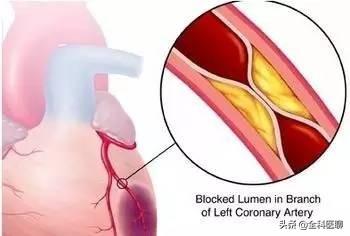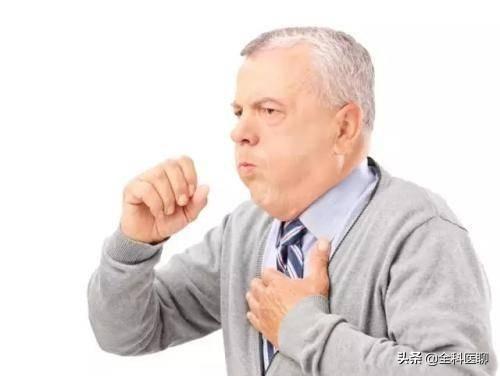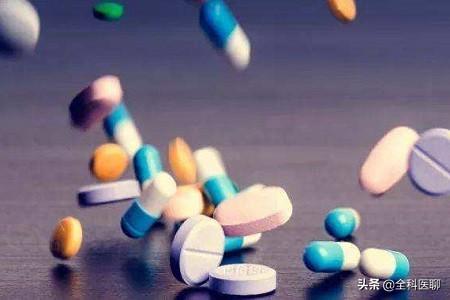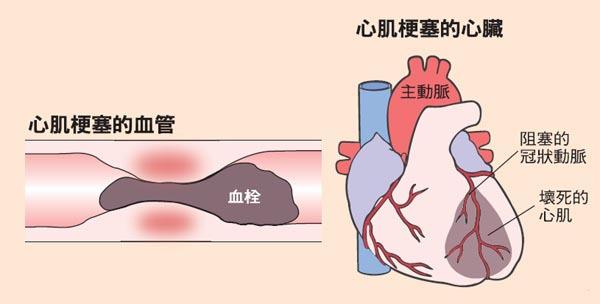What's wrong with coughing all the time after a heart attack?
Hi, I am an attending family medicine physician and I hope my answer helps you.
Myocardial infarction is a serious disease that can cause a number of discomforts, including a cough. In addition, the cough can be caused by myocardial infarction in combination with other diseases, such as bronchitis, pneumonia and other respiratory diseases. There are also medications that can cause coughing.
I'll say a little bit about each below.

First, myocardial infarction causes cough.
Myocardial infarction is usually characterized by chest pain and other discomforts, and rarely causes coughing. However, if myocardial infarction is accompanied by severe cardiac insufficiency or heart failure, coughing may occur.
The main reason is that myocardial infarction causes the patient's heart failure, leading to pulmonary edema, cough, mainly dry cough, some patients will cough pink foamy sputum, some patients will be accompanied by dyspnea or even severe hypoxemia, respiratory failure and so on.
If it causes heart failure, for example, the cough will improve if the heart failure is corrected promptly.
Second, myocardial infarction combined with respiratory disease or other diseases that cause coughing.

Heart infarction combined with bronchitis, pneumonia, bronchial asthma, tuberculosis and other respiratory diseases, especially after myocardial infarction needs bed rest, so it will increase the chance of respiratory tract infection, especially the fall of pneumonia. This kind of condition is mostly characterized by coughing, and at the same time, there may be sputum and fever and other symptoms.
You need to go for chest imaging or blood tests to rule out infection.
In case of respiratory tract infections, anti-infective drugs and cough suppressants and phlegm suppressants are required.
Also if there is a combination of other diseases that cause coughing, such as a combination of reflux esophagitis causing coughing.
All also need to be examined and treated accordingly, depending on the circumstances.
Third, the application of ACEIs caused cough.

Patients with myocardial infarction often apply ACEI drugs such as captopril. These drugs may be uncomfortable for some patients and can cause a tickling dry cough in the throat.
Go ahead and consider this type of medication to be causing it, and you need to stop taking this type of medication or switch to an ARB such as valsartan.
Therefore, myocardial infarction patients with cough, need to be combined with specific circumstances. After myocardial infarction is possible to cough, but to and according to the symptoms and auxiliary examination to clarify whether the cough is caused by post-infarction or other causes, the treatment also needs to be determined on a case-by-case basis.
Coughing in patients with myocardial infarction may be due to myocardial infarction resulting in an attack of left heart failure, coughing due to pulmonary stasis, or even coughing up pink foamy sputum, and patients tend to suffer from suffocation, wheezing, and dyspnea.
Therefore, if a patient with myocardial infarction develops a cough, it is necessary to carry out a detailed physical examination as well as improve the cardiac function tests and cardiac ultrasound and other related examinations to clarify whether there is a situation of heart failure.
Myocardial infarction patients with cough may also be related to the drugs taken, such as taking Prilosec drugs, that is, ACEI class of drugs, its side effect is for the stimulation of dry cough, after stopping the drug, the cough will naturally improve. Myocardial infarction patients cough, may be a combination of trachea, bronchial infections or lung infections, need to improve the relevant examination, in order to assist in the diagnosis!

We need to exclude post-infarction cardiac function decline heart failure caused by coughing, but also need to exclude lung disease, we recommend cardiac ultrasound and chest X-ray can be a clear diagnosis.
After myocardial infarction, heart failure will be triggered, and symptoms such as dyspnea, cough and cyanosis will appear. A while ago the company dinner, a colleague of mine had a history of angina pectoris, that day he was quite happy, so he drank a lot of wine, the party just broke up, he said the anterior region of the heart pain is very strong, so rushed out of the pocket to take out of the nitrate of high oil that comes with it, take it does not see the effect of the pain is still pain, followed by coughing, nausea, vomiting, dyspnea.
(I'm Luo Min, chief physician of a Grade 3A hospital, with more than 30 years of clinical experience in the first line of work of the "old" doctors, my efforts only to harvest everyone's approval, if my answer can help you, I hope you can like, attention, if you have any questions, you can comment or private message me, I will try to help everyone!)

The heart and lungs are linked together, so the lung tissue is also affected after a heart attack!
eating habits
This question and answer are from the site users, does not represent the position of the site, such as infringement, please contact the administrator to delete.